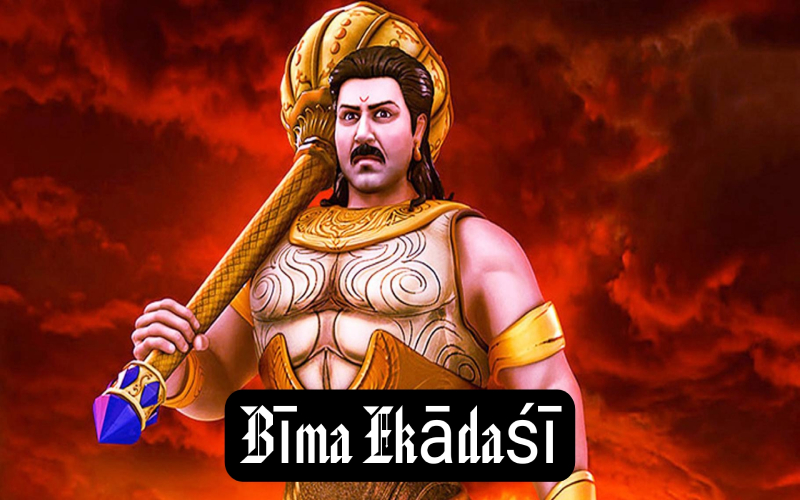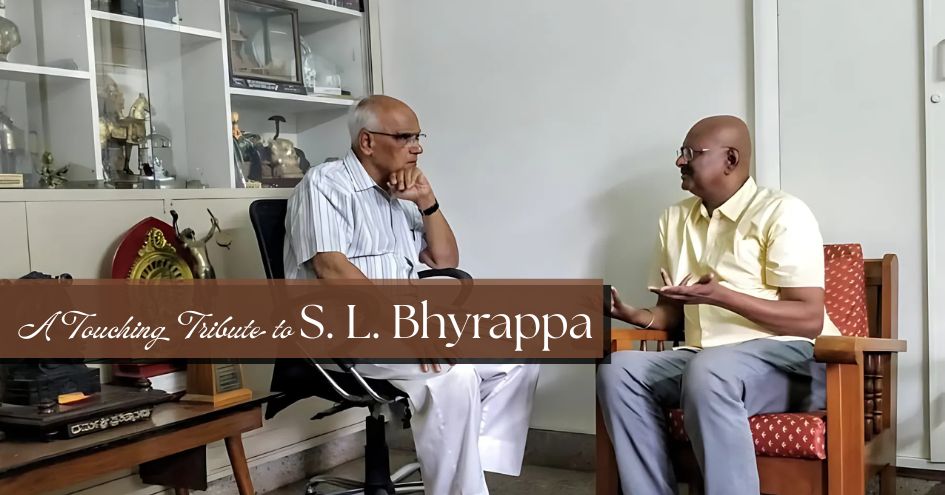
The Fasting of the Bhīma
Ekādaśī is the eleventh day of a month according to the Paṅcāṅgaṁ or the Hindu calendar. It falls twice a month during the Śukla and Kṛṣṇa Pakṣa. Observing the Ekādaśī Vṛta (fast) on all ekādaśī-s is considered to be auspicious and significant, which has the power to take us to various Loka-s. It also has innumerable health benefits and to practice control over sense organs & desires. It is an integral part of a every Sanātana Dharmī-s life.
The Bīma Ekādaśī is commonly known as ‘Nirjala Ekādaśī’. It is also known as ‘Mahāekādaśī’ or ‘Pāṇdava Nirjala Ekādaśī’. ‘Nir' means without and ‘Jala' means water. The fasting observed on an aEkādaśī without even drinking water is called ‘Nirjala Ekādaśī Vṛta’. The explanation to the connection between ‘Nirjala Ekādaśī Vṛta' to Bīmā can be found in the Mahābhārata.
‘Bīmā’ means formidable. ‘Bīmasenā’ means one who has a formidable army. ‘Vṛkodara’ means he who has a thumb-sized fire in his belly, where ‘Vṛk’ means digestive fire and ‘Udhara’ means stomach. The root ‘Vṛk’ also means the one who has a belly as that of a wolf. The wolf although has a greater appetite, its waist is slim. By appearance and appetite, Bīmā also resembled the same. He was known to be great cook, Bhallavā. He had the energy as that of ten thousand elephants. He always paid attention to Draupadi and was deeply attached to her. Whenever she was in stress, he would be the first one to help her. According to Dvaita Saṃpradāya, Bīmā is the most important consort of Draupadi.
Seeing the eldest of the Pāṇdavā-s, Yudhiṣṭhira, along with Draupadī, Arjuna, Nakula and Sahadeva, observing the Vṛta on all Ekādaśī-s, Bīmā was intrigued but was incapable of observing the Vṛta due to his increased appetite. So, one day he approaches Bhagavān Vyāsa to seek answer to his question in mind.
Bīmā explained to Vyāsa Bhagavān about his incapacity to observe Vṛta-s on all Ekādaśī-s, as being observed with care by the other Pāṇdavā-s and Draupadī. He said that being the son of Vāyu, his Samānaprāṇa (digestive air) could not be controlled which leads to ‘Vṛk’, while others were able to do it. Hence, he sought the guidance of Maharṣi Vyāsa who can suggest him a way through which he can achieve the benefits of observing the Vṛta-s on all Ekādaśī-s without observing a similar one.
The Maharṣi said that there was no practical and easy means to achieve the same without observing them all. Bīmā pleaded Vyāsa explaining him clearly about his position seeking for a solution. Finally, Vyāsa suggested him to observe the ‘Nirjala Vṛta’ on the Ekādaśī that falls on the Śukla Pakṣa of Jyeṣṭha month, which later came to be known as Bīma Ekādaśī, as it was prescribed to Bīmā.
On the day of Bīma Ekādaśī, from the early sunrise, one must never consume even a drop of water until the Dvādaśī (The day after Ekādaśī). In case, he/she consumes anything, it is well-known that one is said to have broken the Vṛta. If the Vṛta is strictly held by a person, one achieves the result of observing the 24 Ekādaśī Vṛta-s throughout the year. According to the Śāstra, after observing the fast until the next day one must take bath and end the Vṛta formally by donating gold and water to deserving Brahmins. In modern context, any amount of money, food, or valuables can be given to people who are in need.
NEXT ARTICLE

Subramania Bharati, often referred to as Mahakavi Bharati (Great Poet Bharati), was a revolutionary poet, journalist, and social reformer whose words...

Some writers tell stories, and then there are those rare souls who hold up a mirror to our civilisation, our history, and our innermost selves. Sri Sa...

As the Tricolour rises high on 16 December, Vijay Diwas calls out to the conscience of the nation.It reminds us of a timeless truth:Freedom is earned,...